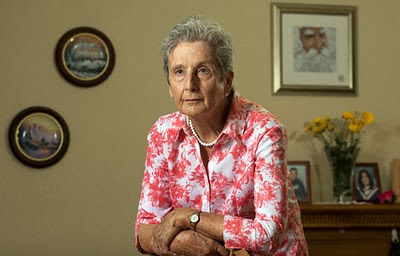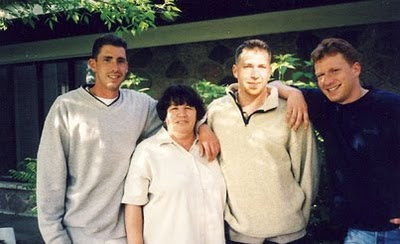 New citizenship limits baffle Canuck dad as baby boy not considered Canadian
New citizenship limits baffle Canuck dad as baby boy not considered Canadian By: Diana Mehta, The Canadian Press
Click here to read the original article in the Winnipeg Free Press.
TORONTO - When Paul Compton was born in Scotland, his parents rushed to register him as a “Canadian born abroad.” They were finishing university and were eager to cross the Atlantic to raise their son as a true Canuck.
But 40 years later, their effort to ensure their son’s citizenship has resulted in their grandson being ineligible for his.
Compton’s son Mateo was born in Lima, Peru, just five months after a revamp of the Citizenship Act last April brought a first-generation limit to citizenship by descent for Canadians born abroad.
“It’s ludicrous,” said Compton. “The most important thing for me to do for my children would be to give them my heritage of being Canadian. And I can’t do that.”
Compton, who was brought to Canada when he was five months old, lived in the country until his early 30s. A teacher, he wanted to work in international schools. He now lives in Lima with his Peruvian wife, but plans to bring his family back to Canada in the future.
His first son, born before the new rules came into effect, automatically became a citizen and has a Canadian passport. Mateo, now a year old, doesn’t.
Last year’s legislation, Bill C-37, was brought in to solve the problems of so called “lost Canadians” – thousands whose citizenship had been taken away from them by outdated provisions of the 1947 Citizenship Act.
But the addition of the first-generation limit created a new problem of statelessness in children born abroad to Canadians who themselves were born overseas. At the time, the government had said the limit was introduced to preserve the value of citizenship.
For Compton, the rule and the reasoning behind it was like a punch in the stomach.
“They’ve taken the pride I had at being Canadian away from me.”
What rankles him most is what he calls a lack of communication from the government.
The family only found out about the first-generation limit when, in preparing for a trip home in July, Compton applied for a Canadian passport for his son and was told his infant wasn’t entitled to one.
“I think this is a major change, something you need to consult the general public about,” he said. “It has extreme implications.”
Now, Compton isn’t asking for an appeal or special consideration. He’d rather see the legislation be amended so his son and others have an equal right to citizenship.
He isn’t the only one.
Immigration Minister Jason Kenney has already heard from multiple Canadian expatriates worried about the impact of the law on their children and grandchildren.
In a speech delivered in Hong Kong last week, Kenney acknowledged their concerns.
“We changed the law to protect the value of Canadian citizenship. My government believes that Canadian citizenship is more than a legal status, more than a passport, and we expect citizens to have an ongoing commitment, connection and loyalty to Canada,” he said.
“Let me be very clear: It was not the intent of the new law to deny citizenship to children born outside Canada to Canadians,” Kenney said, adding that families affected by the first-generation limit have two possible paths to citizenship.
They can either take measures to ensure their child is born in Canada, or sponsor their children born abroad under the Family Class category so they may obtain permanent residence. Parents must provide evidence they will live in Canada once their child becomes a permanent resident.
Once permanent residence is obtained, Kenney has said parents can apply for a regular grant of citizenship on their child’s behalf, without being subject to the regular three-year residency requirement if the children are under 18.
The minister has also introduced a bill in June that, if passed, would allow grandchildren of Canadians who served abroad with the Canadian Forces, the federal public administration or the public service of a province, to be citizens by descent.
NDP Immigration critic Olivia Chow says the fact that such a bill was introduced indicates the government knows something is wrong.
She’s hoping to take the bill a step further to lift the first-generation limit for everyone.
“If we know it’s wrong to declare a diplomat’s granddaughter to be stateless if born outside Canada, then why should the same law apply to ordinary Canadians,” Chow challenged. “There should be an equal law for all.”
The MP plans to propose inclusive amendments when the bill comes to the standing committee on immigration after its second reading.
She’s suggesting an amendment that would require parents to show some sort of connection to Canada, through residency or a Canadian education for example, to ensure the value of citizenship is protected.
Immigration expert Sharryn Aiken, who calls the current law “very short-sighted,” has suggested the same approach.
With an increasingly globalized workforce, the Queen’s University law professor said the amount of dissatisfied Canadian expats affected by the first-generation limit is only going to increase.
“I think the articulated rationale for this restriction was the notion we didn't want people carrying citizenship cards who didn't have an attachment to Canada,” said Aiken. “But that assumes just because you're not living in Canada you're not attached to Canada and I think that's an unfair assumption.”
Compton’s mother couldn’t agree more.
“It’s just so frustrating,” said Flora Compton, who considers her son a proud ambassador for Canada.
The Smiths Falls, Ont., resident has bombarded MPs with letters appealing her grandson’s case, asking for advice and an explanation. One response suggested her son apply for British citizenship, as he was born in Scotland, and pass that onto her grandson.
Although that advice made the family shake their heads at first, with the worrying knowledge that in an emergency only one son would be able to travel to safety in Canada, Paul Compton is seriously considering the option.
“When (the government) puts us in a position like this they’re basically saying don’t go study or work overseas,” he said. “It leaves a lot of expats in a really unstable situation.”
Click here to read the original article in the Winnipeg Free Press.









